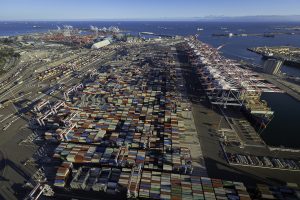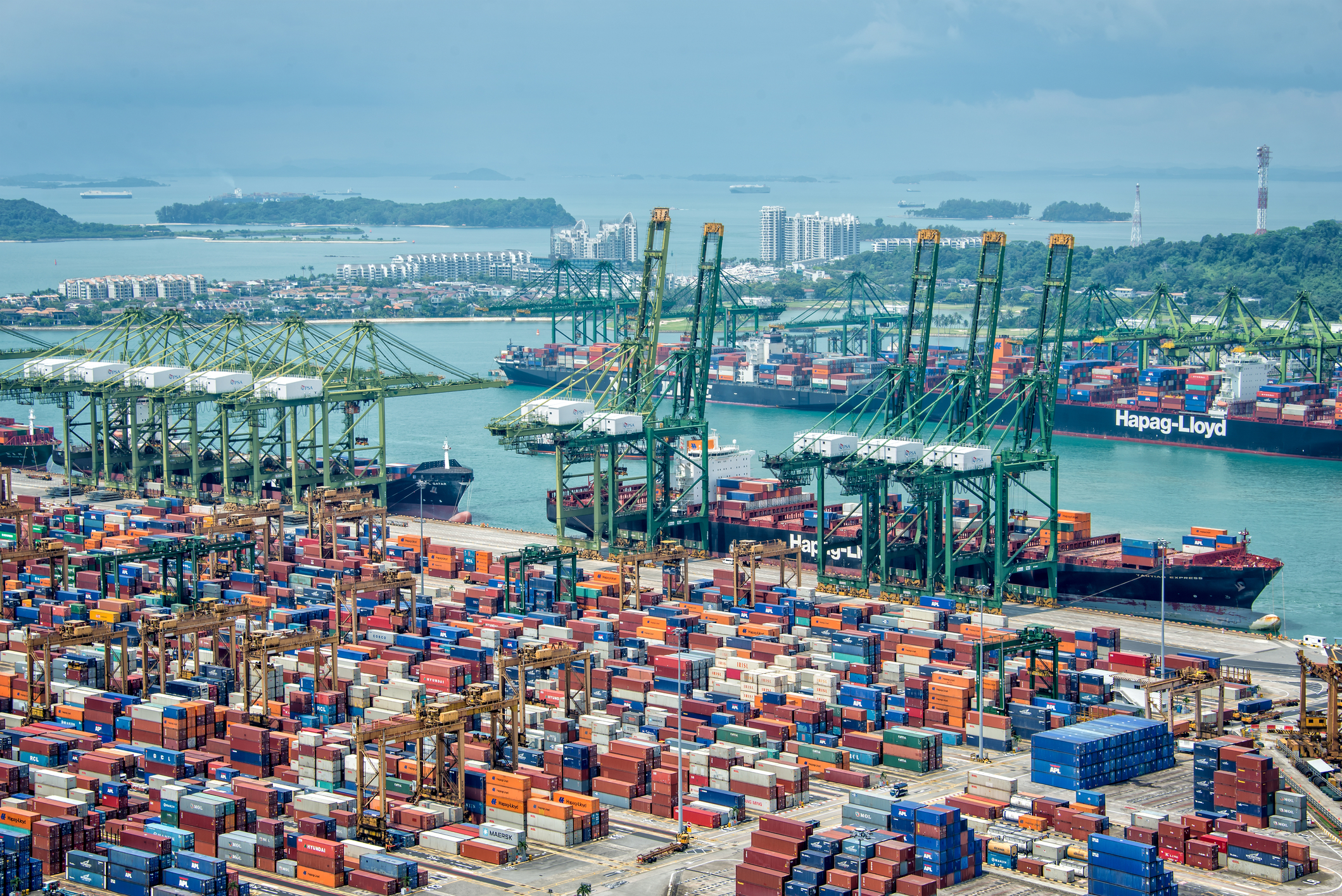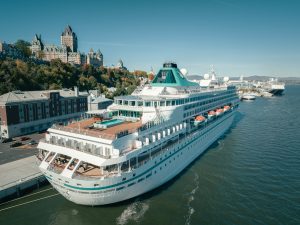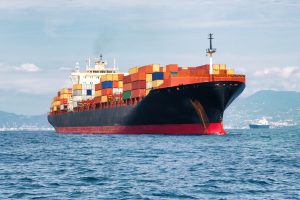At the 28th United Nations Climate Change Conference in Dubai, the Maritime and Port Authority of Singapore (MPA), Port of Long Beach and Port of Los Angeles unveiled a Partnership Strategy for a green and digital shipping corridor across the Pacific Ocean.
The scope of cooperation and success indicators specified in the strategy reaffirm the corridor partners’ commitment to drive global action to digitalize and decarbonize the shipping industry and improve efficiencies.
The release of the Partnership Strategy follows the signing of a memorandum of understanding by MPA, Port of Long Beach and Port of Los Angeles during Singapore Maritime Week in April 2023. The signing formalized the partnership, which is supported by C40 Cities, with the aim of establishing a green and digital shipping corridor connecting the three global hub ports.
“Over the last two decades, we’ve learned that collaboration between maritime industry partners is the key to making meaningful progress in reducing emissions and cleaning the air,” said Port of Long Beach CEO Mario Cordero. “This trans-Pacific green shipping corridor takes this concept global. The strategies we develop here can be used as a roadmap by a larger network of seaports and supply chain companies to invest in programs, technologies, software and infrastructure to decarbonize international trade everywhere.”
“This Partnership Strategy document is the foundation upon which we’ll build the future of maritime shipping,” said Port of Los Angeles Executive Director Gene Seroka. “Our success requires the resolve and dedication of the three partnering ports as well as our industry partners. Together, we will model the collaboration necessary to achieve our climate and efficiency goals.”

The strategy outlines steps to accelerate decarbonization of the maritime shipping industry by enabling first mover organizations to achieve net-zero greenhouse gas emissions by the earliest feasible date, in support of the goals defined by the 2023 International Maritime Organization’s Strategy on Reduction of GHG Emissions from Ships. The ports and C40 will work together and with value-chain stakeholders from the fuel and maritime sectors to:
- Coordinate decarbonization efforts: Partners will help to catalyze and coordinate efforts to enable ships calling at the Port of Singapore, Port of Los Angeles and Port of Long Beach to achieve net-zero greenhouse gas emissions by the earliest feasible date.
- Build consensus on green shipping best practices: Partners will seek to establish consensus around green shipping best practices and standards.
- Improve access to and adoption of technology and digital solutions: To enhance supply chain efficiency, resilience and decarbonization while reducing costs and improving reliability, partners will work to develop and deploy innovative technology and digital solutions.
- Leverage networks: Partners will work with stakeholders involved in other green shipping initiatives, including those established by the three ports and other parties, to scale the uptake of zero and near-zero emission technologies, fuels and energy sources.
As next steps, the ports and C40 have commissioned a study to analyze trade flows and vessel traffic between Singapore, Los Angeles and Long Beach. The study will estimate the quantity of near-zero and zero-emission fuels required for this traffic, and guide implementation by identifying opportunities for collaboration to advance the development of the corridor.
(Photos of the ports of Singapore and Long Beach)








